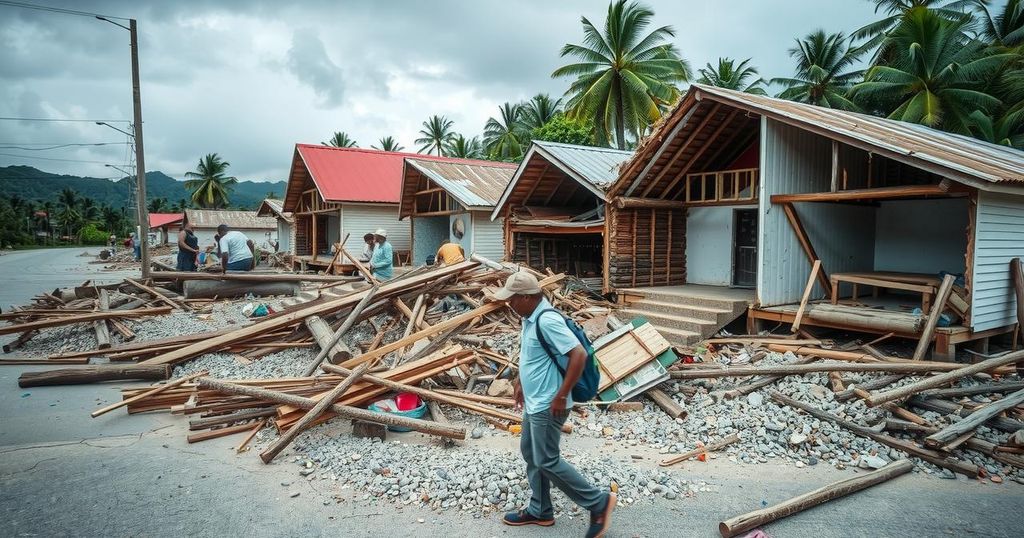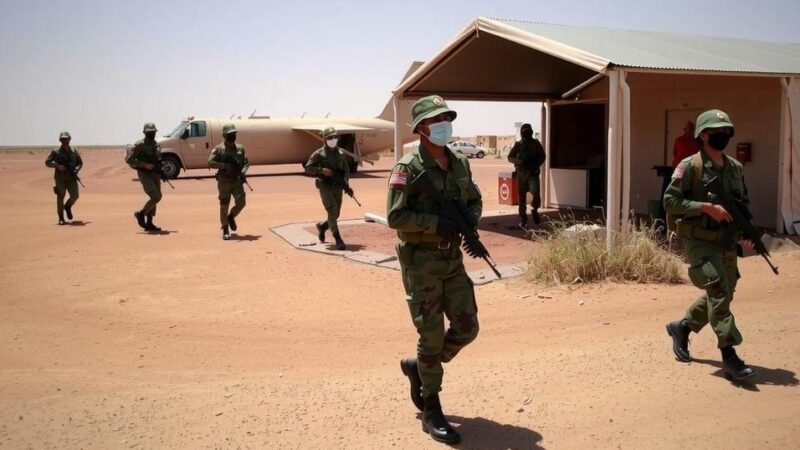Tropical Cyclone Chido and a 7.3-magnitude earthquake in Vanuatu have caused widespread devastation in the Mayotte archipelago, Comoros, Mozambique, and Vanuatu, leading to significant loss of life, destruction of infrastructure, and pressing healthcare needs. Direct Relief is actively providing emergency aid and medical supplies to affected areas, highlighting the ongoing risks to human health following such disasters.
Over the past weekend, Tropical Cyclone Chido caused catastrophic destruction as it swept through the Mayotte archipelago, Comoros, and Mozambique along Africa’s southeastern coast, resulting in significant loss of life. This disaster was further compounded by a powerful 7.3-magnitude earthquake in Vanuatu, highlighting a week of harrowing natural disasters. Cyclone Chido has been identified as the most formidable storm to impact Mayotte in nearly a century, with maximum wind speeds surpassing 140 miles per hour and storm surges reaching 28 feet, leading to the obliteration of communities, particularly informal settlements housing undocumented migrants. Although the official death toll in Mayotte stands at 22, casualty estimates could be much higher as the area continues to be assessed.
The destruction in Comoros has also been extensive, prompting President Azali Assoumani to declare a week of mourning for the deceased while assessing the country’s infrastructure damage, characterized as “enormous.” Meanwhile, Mozambique, already vulnerable to adverse weather conditions, was hit hard; winds reaching over 160 miles per hour and heavy rains left lasting damage across the region’s homes, health facilities, and other critical infrastructures. In response, Direct Relief has mobilized efforts to assess and address the immediate healthcare needs of affected communities.
In Mayotte, Direct Relief is collaborating with French emergency first response agencies to facilitate healthcare support. For Comoros, the organization is coordinating with Santé Diabète, a French NGO focused on diabetes prevention and care, while also reaching out to Mozambique’s Ministry of Health to provide emergency medical supplies as damage assessments continue.
Following the significant earthquake in Vanuatu, assessments are in progress to gauge damage to homes, public infrastructure, and healthcare services. Direct Relief has commenced coordination with local healthcare partners to identify urgent needs, with a shipment of emergency medicines and supplies en route to the devastated region.
Natural disasters such as earthquakes and cyclones pose immediate and lingering threats to human health. After such events, communities become susceptible to diseases, heightened risk of displacement, and disruptions in chronic care, particularly affecting vulnerable populations like pregnant women and infants. Direct Relief plays a crucial role in mitigating these challenges by ensuring vital medical supplies reach those on the frontline of care.
Direct Relief’s commitment to disaster response is underscored by its historical contributions following significant catastrophes globally. Previously, the organization provided over 100 tons of medical aid to southern Africa following relevant cyclones and a vast array of aid to healthcare providers after major earthquakes in regions such as Türkiye, Syria, Nepal, Haiti, the Philippines, and more. This proactive and responsive strategy has allowed Direct Relief to deliver billions in medical aid and facilitate the rebuilding of healthcare systems impacted by disasters.
As the impacts of Cyclone Chido and the earthquake in Vanuatu unfold, Direct Relief reiterates its commitment to supporting healthcare providers, assisting communities in recovery efforts, and ensuring that essential medical care reaches the most vulnerable individuals.
The recent occurrences of Tropical Cyclone Chido and the 7.3-magnitude earthquake in Vanuatu highlight the devastating effects of natural disasters on human life and health. Tropical Cyclone Chido, recognized as one of the most potent storms in Mayotte’s history, has not only caused immediate destruction but also raises significant concerns regarding long-term health impacts, particularly in relation to disease outbreaks, displacement, and the disruption of healthcare services. Vanuatu’s earthquake further compounds the situation, making rehabilitation efforts increasingly crucial amidst potential aftershocks and infrastructure challenges.
In conclusion, the recent devastation from Cyclone Chido and the earthquake in Vanuatu underscores the grave impact of natural disasters on vulnerable populations. This chain of events has dramatically affected communities, leading to loss of life, injuries, and severe health care disruptions. Direct Relief’s ongoing efforts to provide essential medical supplies and coordinate with local healthcare partners illustrate the significant role that humanitarian organizations play in responding to crises. Continued support and proactive measures are essential to assist recovery and restore health services in affected regions.
Original Source: www.directrelief.org







